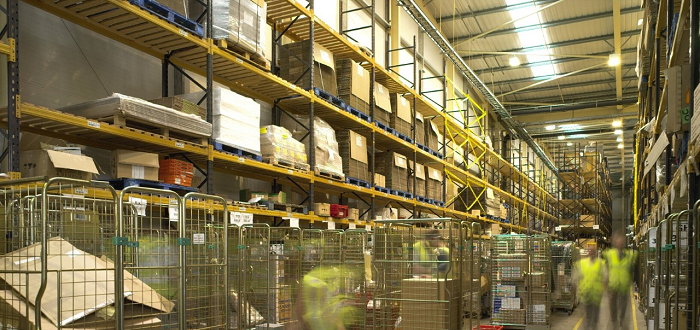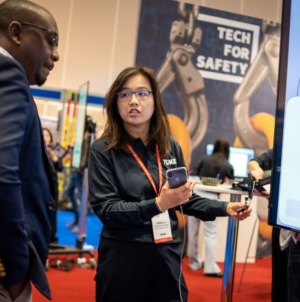-
ROSSLARE EUROPORT TARGETS HEALTH & SAFETY WITH CAMERA TELEMATICS PARTNERSHIP - 2 days ago
-
Landmark Study Reveals Wearable Robotics Significantly Boost Safety and Efficiency in Industrial Environments - July 24, 2024
-
Visku Tackle The Retail Seasonality Challenge One Pallet At A Time - July 22, 2024
-
KAMMAC AND BERGEN LOGISTICS STRENGTHEN FASHION & LIFESTYLE SERVICES IN THE UK - July 19, 2024
-
TENTBOX EXTENDS PARTNERSHIP WITH ARROWXL TO SUPPORT INCREASING DEMAND - July 17, 2024
-
The Perfume Shop improves customer journeys while driving profitability in partnership with Scurri - July 17, 2024
-
ZEROMISSION SECURES £2.3M ($3M) INVESTMENT TO ACCELERATE ELECTRIC FLEETS - July 16, 2024
-
BCMPA CELEBRATES SUCCESS OF 2024 CONFERENCE - July 15, 2024
-
Best of the Best: Jungheinrich Celebrates Triple International Award Win - July 12, 2024
-
GOPLASTICPALLETS.COM CALLS ON NEW CHANCELLOR RACHEL REEVES TO CONSIDER PLASTIC PACKAGING TAX REFORM - July 10, 2024
UKWA warns that points-based immigration system may lead to vital worker shortage
The UK Warehousing Association (UKWA) has warned that the logistics industry is likely to face a shortage of vital workers following the Government’s announcement of its new points-based immigration system that will limit the number of low-skilled workers entering the UK.
Peter Ward, the Association’s CEO, commented: “‘Companies operating in the logistics and warehousing industry need access to low-skilled, low-cost labour and with low youth unemployment figures in the UK, the sector has traditionally looked to the EU to supplement its workforce.”
He continued: “While it is hoped that the majority of EU citizens currently working in UK warehouses and distribution centres will choose to stay in Britain by applying for EU settlement scheme status, it is clear that the inability to recruit shop-floor operations staff from other countries will add to the recruitment pressure that the logistics industry is already under.”
Peter Ward questioned the Government’s suggestion that businesses will be able to reduce their reliance on foreign workers by increasing levels of pay and investing in automation.
He said: “The logistics industry operates on the narrowest of margins and it is hard to see how any significant across-the-board pay increases for low-skilled staff could be introduced without passing on the additional costs, unless the days when online shoppers expect low priced goods with cost-free and immediate delivery become a thing of the past.
“And, while it is true that the use of automation is growing across the logistics industry, there are many roles within a typical warehouse operation that remain difficult to automate. Although recent developments have made automation more scalable and flexible, for many warehouse operators the outlay on the type of fixed assets found in automated systems – is impossible to justify. Furthermore, automation does not replace a workforce, but creates new jobs with different skills, which needs investment in training and cannot be achieved overnight.”
Peter Ward added: “UKWA remains committed to working with the Government to find practical solutions to the issues that lie ahead, and we are seeking urgent talks to deliver the message that the logistics industry must have access to the workers needed to ensure that the UK’s essential supply chains do not suffer as a result of these changes to our immigration rules.”

































